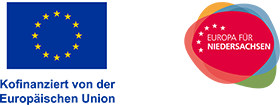Inhaltsbereich
Welcome Center Hildesheim
Das Welcome Center Hildesheim ist für alle Menschen, die zur Arbeitsaufnahme nach Hildesheim gekommen sind oder es demnächst planen sowie für Unternehmen, Arbeitgeberinnen und Arbeitgeber eine zentrale Anlaufstelle. Zu Fragen rund um das Thema Ankommen und der beruflichen Integration stehen wir Ihnen gerne zur Verfügung.
Wir bieten Ihnen eine kostenfreie Beratung!
Weitere Informationen:
Schritte vor und nach der Einreise aus einem Drittstaat
Haben Sie Fragen? Kontaktieren Sie uns!
